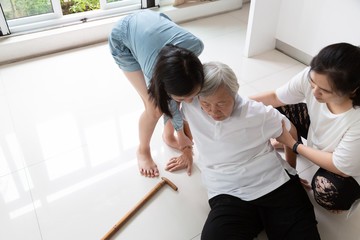Property owners are responsible for protecting everyone and everything on and around their land regarding personal safety. Several hazards are associated with disregarding dangerous conditions and long-term neglect, such as a hazardous atmosphere for visitors, employees, and oneself. As owners of commercial and residential property, it is the owner’s responsibility to create a safe community. Efforts that fall short of this obligation may result in accidents, typically connected to costly compensation. Keep reading to learn more!
Litigation
Litigation arising from personal injuries obtained within a specific place also ties property owners, maintenance contractors, management firms, and leasers to premises responsibility.
It may look overwhelming, but every property owner should get well acquainted with the principles of premises liability law. No matter where the injuries occur, these claims all have the potential to become costly lawsuits. Also, knowing your obligations’ scope can help save you from being liable for situations you didn’t foresee.
Premises-Based Liability
Premises responsibility pertains to legal liability for specific incidents inside the boundaries of their property. Property owners are legally responsible for injuries resulting from hazardous conditions, including exposed excavations, uneven pavement, standing water, crumbling curbs, wet floors, unfinished sidewalks, dangerous areas, walkways, inadequate security, insufficient lighting, or holes that are obscured. As a brief definition, premises liability is related to responsibility for injuries sustained by persons present on the property owner’s property.
Premises Responsibility
Ownership of the land or premises must be demonstrated by the defendant or defendants.
The case must involve either an invitee or licensee or trespassers for the legislation to apply.
To successfully prove that someone’s property carelessness or unlawful conduct was done by the owner, it must be shown that the property owner was at fault.
Plaintiffs refer to exceptional relationships with the property and its owner for each form of a lawsuit.
What is an Invitee?
An invitee is someone who has been granted permission to enter premises for the advantage of the property owner. All types of consumers, clients, and patrons are defined as invitees. The invitee standard of care must be adhered to by owners. A case of premises liability is only possible if the people invited to a property can establish that the property owner was aware of the potential risks and should have taken precautions. It is necessary by law that all commercial properties be inspected regularly to ensure the premises are safe.
Commercial motives are not the only reasons licensees are allowed inside the premises.
Unauthorized Entry
Any unauthorized entry onto the property is not only a violation of the law but an implicit trespass. Some states treat property trespassers differently, whereas others enforce the law uniformly. Courts usually favor property owners rather than trespassers in most situations. However, unless there are exceptionally unusual situations, property owners owe no duty to defend their property from risks as long as they are unaware of any trespassing. Several states hold property owners liable for endangering trespassers by failing to notify them of hazards on their land.
If you ignore your property issues, you will endanger yourself and others.
Invitees and licensees within the commercial property are legally required to be protected and well-cared for. It is essential to maintain proper facilities, and facilities inspections should be conducted periodically.
Slip-and-Fall
Slip-and-fall incidents are the most common premises liability claims. A safer, cleaner environment is encouraged by placing floor mats under area rugs. These mats trap moisture and dirt and thus reduces the risk of slipping and falling in the case of an accident.
Personal injury attorneys sometimes describe various sorts of accidents as “the sticky wickets” of law.
Why?
The crux of premises liability is establishing who is responsible for an incident. In the legal sense, the phrase “premises liability” refers to the body of legislation accountable for dealing with injuries sustained by a third party when they are present on property owned by another person. That means those who own and control land are responsible for making sure it is safe and hazard-free.
Prevalent Claims
Slip and fall incidents are among the most prevalent claims under premises liability. For the most part, these types of incidents happen without anticipating them. We slip and fall on a damp floor while going through a supermarket store or break a bone at a restaurant when tripping over a loose stone on the sidewalk. Disabling or fatal injuries, like these, appear unavoidable if only a grocery shop had placed a sign warning “Wet Floor!” or if a restaurant had repaired the cracked stone that was seen for the first time two months prior.
However, premises liability is not an easy concept to understand. You may not be able to sue the business if you slip and fall since you weren’t paying attention to the notice indicating wet floors.
Premises Liability Legal Counsel
If you have an issue with premises liability, you’ll want to consult with a skilled premises liability attorney. Regardless of the facts, it is accepted that no two slip and fall instances are the same. Blame cannot be predetermined. A personal injury attorney is the only one who can make the determination of whether or not you have a case.
Premises liability involves many complexities of law that require the counsel of an experienced premise liability attorney.
Lieberman Injury Law in Deerfield Beach, Florida can help. Call Jessie Lieberman and his staff today at 954-596-9944 or contact us here for a free case evaluation.

